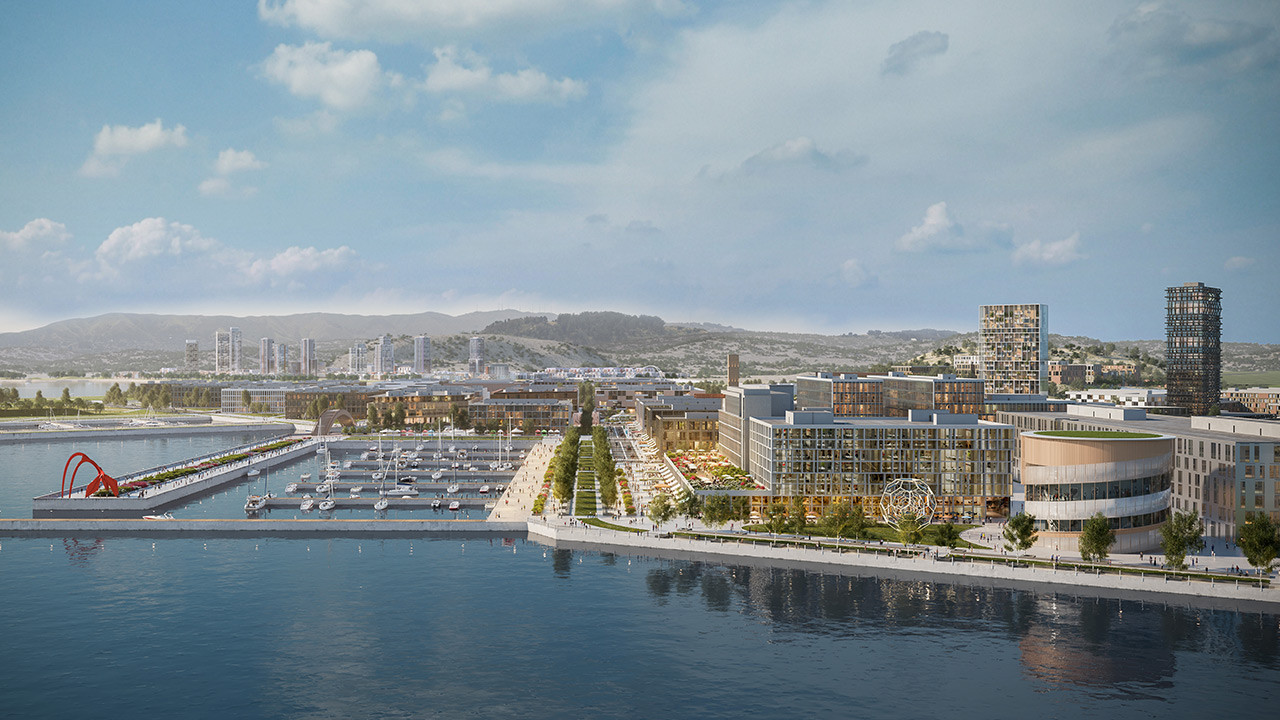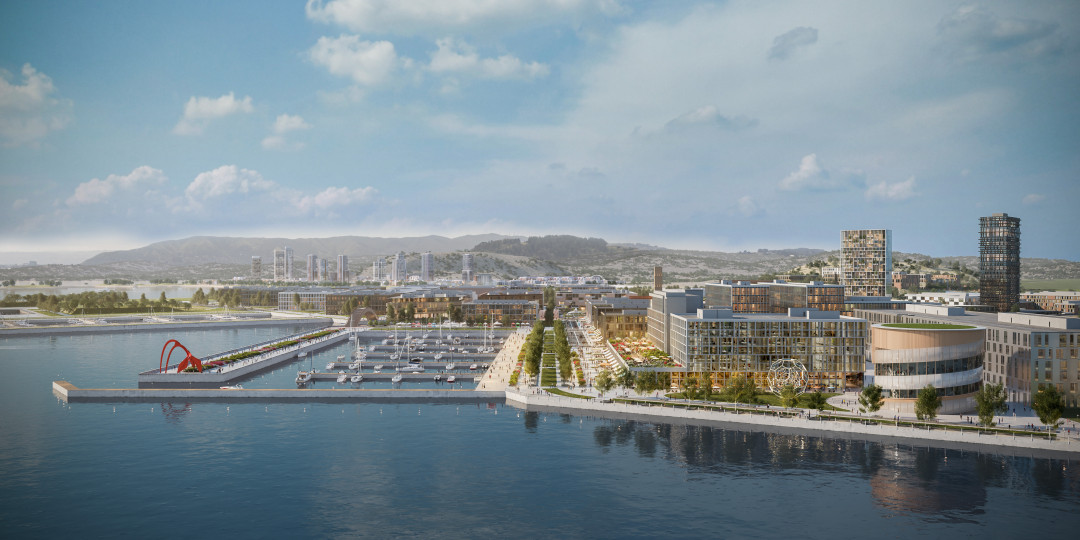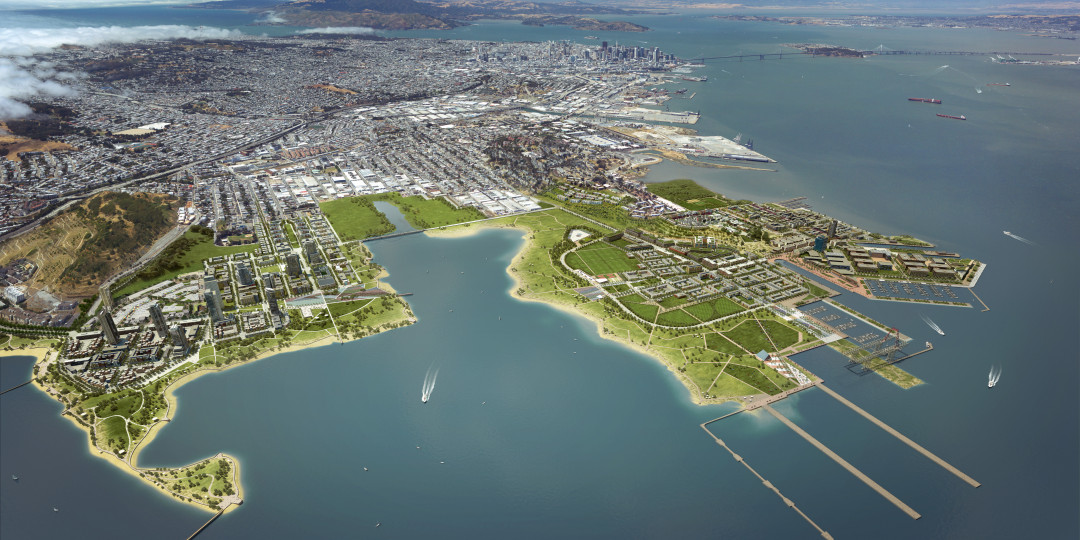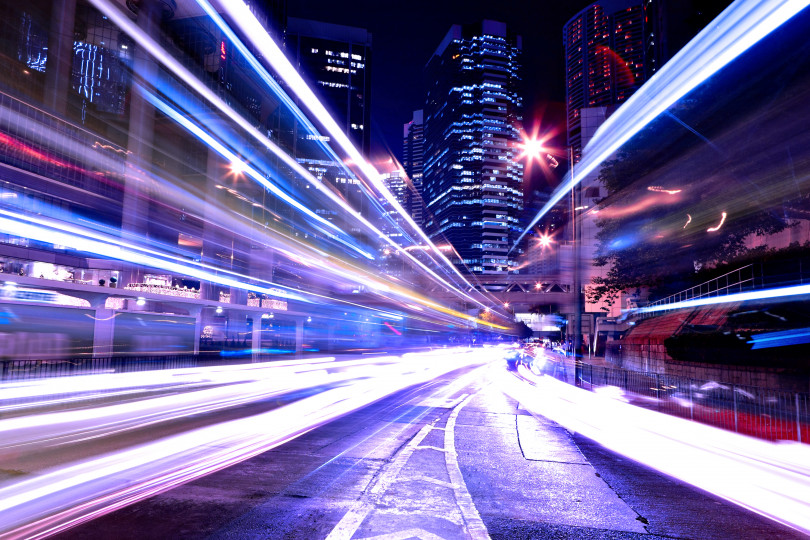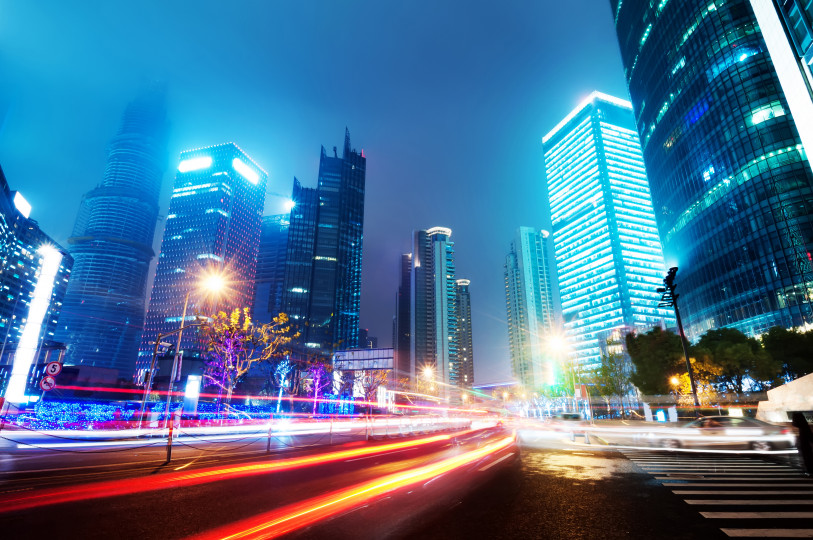Stuttgart, Germany – By 2050, more than six billion people worldwide will live in cities, which need to provide increasing levels of convenience, energy efficiency, and security. That requires completely new concepts for urban mobility and the sustainable use of resources. The evolution of a city into a smart city can help to meet these needs. At the Smart City Expo Expo World Congress 2016 in Barcelona (November 15-17), Bosch will present solutions and projects for intelligently connected cities that provide their citizens with a higher quality of life and, at the same time, save energy and operating costs. The energy efficiency potential in cities is enormous: cities consume 75 percent of the energy produced globally, with buildings alone accounting for 40 percent. Market experts estimate that by 2019, cities could cut approximately 11 billion dollars in energy costs.
San Francisco: smart technology for a new community development
The former sites of a Navy shipyard and the Candlestick Park stadium, are being developed into new, attractive, waterfront communities: The San Francisco Shipyard and Candlestick. With plans for 12,100 homes, over 350 acres of parks and open space, an urban outlet shopping mall, up to 5 million square feet of commercial space comprised of research/development, makers space and office space, along with nearly 300 artists’ studios. This is the biggest urban redevelopment project in San Francisco since the 1906 earthquake. FivePoint and Bosch technologies are working together to bring connectivity to The SF Shipyard, offering a taste of life in a smart city with solutions for smarter homes and communities and widespread mobility and connectivity. Bosch is working as a technology partner to FivePoint, on smart solutions for these modern districts, including a Smart Community app, which will provide residents with localized, real-time information on public transport as well as access to intelligent surveillance solutions. There are also plans for future-oriented solutions for efficient traffic management and smart buildings, which will promote a high quality of life.
Stuttgart: Smartphone app as a guide to free parking spaces
Mobility is the pulse of every city. But more and more metropolitan areas are at risk of gridlock. Thirty percent of urban traffic is caused solely by drivers who are unable to find a free parking space. As part of a pilot project with the Verband Region Stuttgart, the Stuttgart regional authority for mobility, Bosch is testing out smart parking space management. Bosch has fitted around 2,500 sensors over the past few months to a total of 15 park-and-ride spaces along both of Stuttgart’s commuter train lines. And the principle of using these sensors to display parking space utilization in real time works. This was proven by a demonstration at a park-and-ride parking garage in mid-October. For representatives of participating municipalities and the Verband Region Stuttgart as the pilot project partner, the Bosch team responsible for the project demonstrated how it worked. Just park a car, and seconds later, the online display changes to red: the space is occupied. Move the car out of the space, and seconds later, the display changes to green: the space is available. The project is due to go live at the beginning of 2017.
Bosch smart-city solutions for mobility, energy, buildings, security, and e-governance
For smart cities, Bosch offers solutions in the areas of mobility, energy, buildings, security, and e-governance – in other words, digital city administration. With regard to mobility, these solutions include environmental monitoring, connected parking, fleet management, e-mobility, and intermodal transport, which is the linking of different modes of transport. When it comes to energy, the range includes virtual power plants, energy-efficient heating, hot water, and cooling systems, as well as energy storage units. The security solutions encompass systems for fire protection, access control, and video surveillance. For residential buildings, Bosch provides smart home technology and connected household appliances. As for e-governance, the range includes the Community app and the City Data Platform.
At CES 2017 (January 5-8) in Las Vegas, Bosch will present its smart city solutions as well.
EXPERIENCE BOSCH AT THE CES 2017 in Las Vegas, Nevada, USA: At the CES 2017, Bosch is showing how the Internet of Things is getting personal – how things can be turned into partners. Connected technologies enable personal assistance in all areas of life: they improve mobility, shape the cities of the future, make the home intelligent, health care technology more efficient, and they make work easier. For the fifth time at CES, Bosch is presenting an expanded portfolio of "simply.connected" networked solutions.
BOSCH PRESS CONFERENCE: Wednesday, January 4, 2017, 09:00 am to 10:00 am (local time): with Dr. Werner Struth, member of the Bosch board of management at Mandalay Bay Hotel, South Convention Center, Ball Rooms BCD
FOLLOW the Bosch CES 2017 Highlights on Twitter: #BoschCES
BOSCH BOOTH: Thursday to Sunday, January 5-8, 2017 at Central Hall, booth #14128
PANELS WITH BOSCH ESPERTS:
Thursday, January 5, 2017; 11:30 am to 12:30 pm (local time): Conference track “MEMS & Sensors: Personalizing Consumer Technology”, Session “Where are Consumer Electronics Taking the Sensors Industry?” with Dr. Stefan Finkbeiner, CEO and General Manager, Bosch Sensortec; Venetian, Level 4, Marcello 4501
Friday, January 6, 15:30 pm to 4:30 pm (local time): Conference track “Vehicle Technology”; Session “Redefining the Automotive Infotainment Experience” with Mr. Torsten Mlasko, Las Vegas Convention Center N258
Mónika Hack
+36 70 510 5516
The Bosch Group is a leading global supplier of technology and services. It employs roughly 375,000 associates worldwide (as of December 31, 2015). The company generated sales of 70.6 billion euros in 2015. Its operations are divided into four business sectors: Mobility Solutions, Industrial Technology, Consumer Goods, and Energy and Building Technology. The Bosch Group comprises Robert Bosch GmbH and its roughly 440 subsidiaries and regional companies in some 60 countries. Including sales and service partners, Bosch’s global manufacturing and sales network covers some 150 countries. The basis for the company’s future growth is its innovative strength. Bosch employs 55,800 associates in research and development at 118 locations across the globe. The Bosch Group’s strategic objective is to deliver innovations for a connected life. Bosch improves quality of life worldwide with products and services that are innovative and spark enthusiasm. In short, Bosch creates technology that is “Invented for life.”
The company was set up in Stuttgart in 1886 by Robert Bosch (1861-1942) as “Workshop for Precision Mechanics and Electrical Engineering.” The special ownership structure of Robert Bosch GmbH guarantees the entrepreneurial freedom of the Bosch Group, making it possible for the company to plan over the long term and to undertake significant up-front investments in the safeguarding of its future. Ninety-two percent of the share capital of Robert Bosch GmbH is held by Robert Bosch Stiftung GmbH, a charitable foundation. The majority of voting rights are held by Robert Bosch Industrietreuhand KG, an industrial trust. The entrepreneurial ownership functions are carried out by the trust. The remaining shares are held by the Bosch family and by Robert Bosch GmbH.
Additional information is available online at www.bosch.hu

